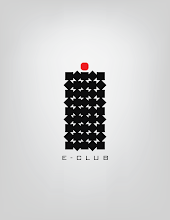The First meeting of the Entrepreneurship Club, IIT-Madras was conducted at DoMS 253 at 8 p.m. on this day. The meet brought together the entrepreneur aspirants of the campus. A brief presentation on the objectives of the E-Club was laid out to the audience. In this foundation meet Shivraj and Rashid, the coords for E-Club, expatiated on the activities of the club. Excerpts from their presentation: E-Club is a discussion forum for presenting innovative ideas that can make an impact socially and can be converted into a money grossing business. Ideas, questions, and concepts generate entrepreneurial interests. And there is nothing like a bad idea, whatever one feels to be shared with the people, E-Club offers a platform for those.
The foundation meeting was not devoid of any presentation. Shampoo (V. Manoj Kumar, Meta, I year) from Jamuna hostel presented an alternative for artificial shampoos known for a lot of health problems apart from the generic use these have. The herbal shampoos,preparation of which Shampoo elaborated on, detergents and other herbal products don't have any side-effects and can be lucrative once it's manufactured on a large scale and marketed properly. Shampoo won laurels for presenting this idea in the 14th National Children Science Conference in 2006. The making of the shampoo involves neem, shikakai, soapnut, brahmi, buttermilk, amla, and certain other ingredients (11 in numbers) all collected from nature.
The artificial shampoos that come in the markets spoil hair and are basic in nature..... This is obviously an end to the serious part. Now to an informal one... Though shampoo's lecture/presentation lacked an experience of a professional presenter or the charisma of an expert in these matters (I myself am doubtful of these ‘wonderfully’ constructed adjectives, and have no idea what it means:-D), it was not at all a 'cupper'; rather a good one. The idea was worth discussing, and once the presentation entered that level, it was a feast for the crib - junta. Questions were raised from every nook and corner, ferocious and violent questioners put across their views convincingly to all the viewers. To which Shampoo had no answer other than mmmm...., okay..., if it's so and so... stuff. Unfortunately to add to the din, his ppt stopped working in between and had to withdraw before the presentation came to its formal ending.
Next it was the turn of the SOE team for Shaastra, comprising of Avanish T., Chinmay Shukla, Mahak Singhal (all from E.D). They presented before the full packed room, the brand new idea of Algiesel (One among the few highly tipped fuel for sustaining the development, to put it in different words). Algiesel, as the name indicates is the bio diesel extracted from algae. Algae are one of the fastest growing organisms which synthesize food by the process of photosynthesis. In this process of manufacturing algiesel, the lipid content of algae is availed to a greater extent. The emphasis given to algae even when successful extraction of biodiesel from jatropha is possible, is due to 'Food vs Fuel' dispute. While jatropha is a weed that eats up a lot of farming land as is been in the US these days, algae require water that has minimal value for humans, even that which is unusable to man. For these reasons ethanol from corn is less preferred (at least in research circles) than ethanol from algae.Further the presentation went on to give microscopic details about conducting the project, general overview of the design, trans-estrification, flocculator and all those incomprehensible words that left most of the audience bemused. Unfortunate to say this part of the presentation was dry, and completely lacked any interest. And later the same effect was generated when to the wonderstruck audience, the team spoke about the high impact that this technique can make in the future. But to reveal everything about this would-be start up (hopefully, again!), the cost of production was stated to be Rs. 15,000 per litre. With the scale-up issue, from 2L to 200L, the data available from the present day lab work on lipid contents and cell counts of different algal strains can be useful albeit requires more laborious research from the modern day scientists to effectively extract 'maximum from minimum' algae.
The current status of one of the feasible solutions for the ‘fuel-cut’ revolves around the following question: What are conditions for identifying the correct algae? – The specifications like pH, temperature, salinity etc. The prospects of this project is highlighted by the amount of major players invested heavily in this sector like NIOT (National Institute for Ocean Technology), and Royal Dutch Shell. Later the discussion was focused on the questions like the working of the pertinent system juxtaposing to solar power, green development issue, and entrepreneurial input in this project (i.e. the novelty of this project as seen from entrepreneurial point of view).
The whole meet came to an end after this well-nigh perfect professionalism and composure exhibited by the SOE team, attracting high praise.





No comments:
Post a Comment